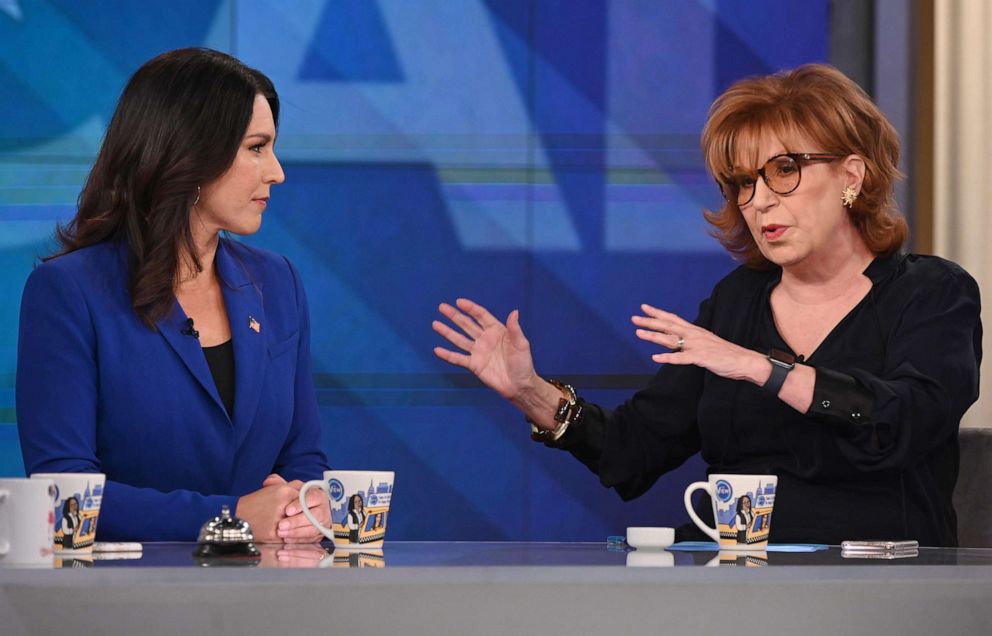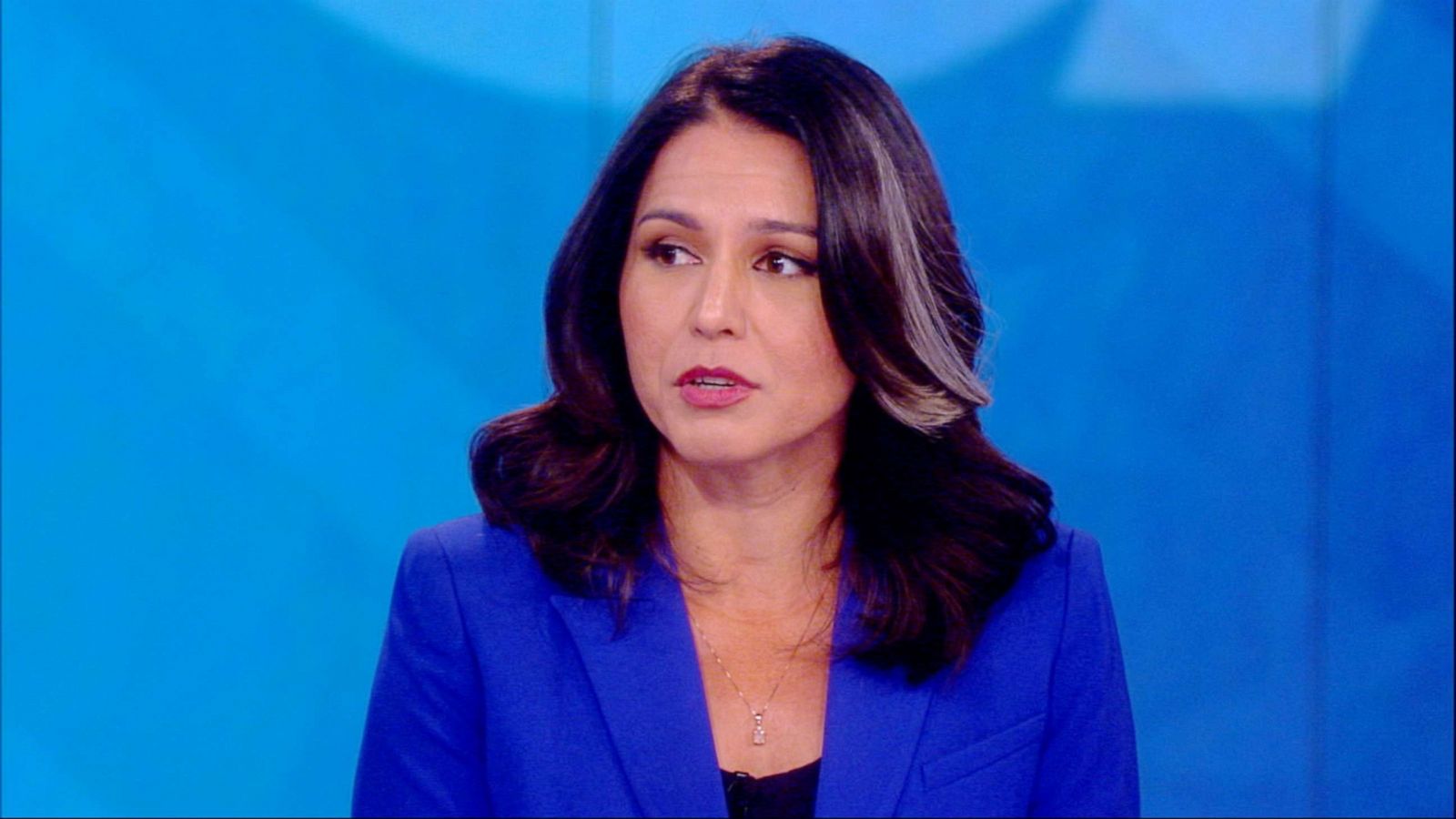For years, “The View” has been a gladiator pit of political discourse, a place where careers can be made or broken in a single, fiery segment. But what unfolded between former congresswoman and presidential candidate Tulsi Gabbard and veteran host Joy Behar was something different. It wasn’t a debate; it was a takedown. In a stunning and explosive confrontation that sent social media into a frenzy, Gabbard didn’t just defend herself against what she called “lies and personal attacks”—she systematically dismantled her opponent’s credibility on live television, creating a raw, unfiltered, and unforgettable television moment.

The confrontation ignited almost immediately. Joy Behar, in her signature style, opened with what was described as a “trademark jab,” a seemingly casual remark laced with innuendo and what Gabbard identified as “baseless claims.” It was a tactic Behar has employed countless times, designed to throw a guest off balance and frame them in a negative light for the audience. But Gabbard was not just any guest. A combat veteran with a famously calm demeanor under pressure, she did not flinch. Instead, she went on the offensive. When Behar persisted, Gabbard looked her in the eye and called her an “idiot” on national television—a shocking, blunt assessment that instantly seized control of the conversation.
From that moment on, the power dynamic on the stage irrevocably shifted. This was no longer Behar’s arena. Gabbard declared, “You’re not going to push me around,” a clear statement of intent to both the hosts and the millions watching at home. She repeatedly cut Behar off, not with chaotic interruptions, but with a calm, assertive demand to be heard. “No, Joy, you listen,” she commanded, forcing the host into a rare moment of on-air submission. Throughout the tense exchange, Gabbard accused Behar of building a career not on insightful commentary, but on “tearing down people you don’t agree with.” She alleged that Behar was a purveyor of intentional “misinformation,” using her powerful platform to smear the character of those who challenge her worldview.
At the heart of the fiery exchange were the persistent and damaging accusations that have shadowed Gabbard for years—the insidious claim that she is a “Russian asset” or a “Trojan horse” for foreign interests. These smears, most famously amplified by Hillary Clinton during the 2020 presidential campaign, have been used to question her loyalty and patriotism. On “The View,” Gabbard confronted these accusations head-on. She powerfully articulated her identity as a “patriot” and a “strong and intelligent woman of color” who has dedicated her life to serving the United States.
With unwavering composure, she reminded the panel and the audience of her record, not just her rhetoric. She spoke of her decision to enlist in the military after the horrific attacks of 9/11 and her subsequent deployments to the Middle East. This wasn’t a politician spinning talking points; it was a soldier defending her honor. By grounding her defense in her verifiable service and sacrifice, she framed the accusations against her not just as political attacks, but as deeply disrespectful smears against a veteran.
Gabbard also used the opportunity to draw a sharp contrast between her foreign policy vision and that of her chief accuser, Hillary Clinton. She criticized Clinton’s legacy of “interventionism” and “toppling dictators,” arguing that these policies have often led to more chaos, instability, and suffering around the world. By linking the personal smears against her to a broader ideological battle over America’s role in the world, she elevated the conversation from a simple squabble on a talk show to a substantive critique of the foreign policy establishment.

The on-air clash was a masterclass in media confrontation. Gabbard never lost her cool. While Behar appeared visibly flustered, Gabbard remained a picture of stoic resolve. She dominated the conversation, not through volume, but through a steady, relentless application of logic and personal testimony. She refused to be sidetracked, constantly bringing the conversation back to her central points: that the accusations against her were baseless, that her service record speaks for itself, and that she would not be intimidated.
The impact was immediate and decisive. Social media was “ablaze” with clips of the confrontation, with commentators from across the political spectrum declaring that Gabbard had “owned” the appearance. The narrative was clear: a powerful, independent voice had walked into the lion’s den and emerged not just unscathed, but victorious. She had not only defended her character but had also exposed the tactics of her critics in a way that was impossible to ignore. For a few stunning minutes on live television, Tulsi Gabbard wasn’t just a guest on “The View”; she was in command of it, leaving her opponents silenced and a national audience buzzing.



